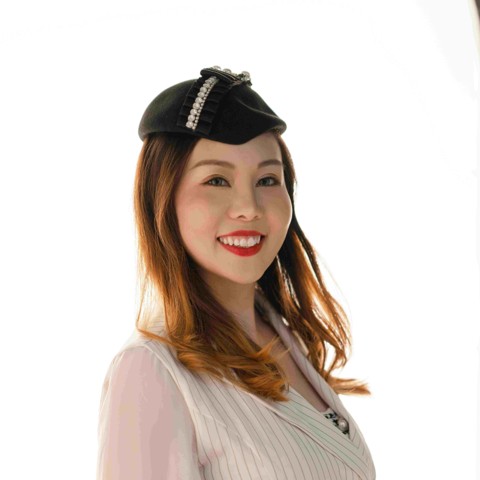Trust Estate
Why Asia's Wealthy Must Put Values At Estate Planning Core

We talk to a Singapore-based legacy planner, expert on trusts and tax, and now a published author on wealth and values, about her approach to thinking of intergenerational wealth planning, and more.
In a region such as Southeast Asia, home to a great deal of first-generation wealth, second and third generation wealth holders are increasingly important as time goes by. The sums involved are vast. There is also a risk that misguided plans could result in losing a great deal of that money.
Globally, multigenerational billionaires have inherited a total of $1.3 trillion in the past decade (source: UBS report on billionaires, 2024). UBS reckons that billionaires aged 70 and above will transfer $6.3 trillion to the next generation over the next 15 years, and even though specific generational data for Singapore is hard to come by, for example, the broad figures are suggestive of what is at stake. Below the billionaire bracket, there are roughly 332,491 millionaires ($1 million+) in Singapore alone, according to SmartWealth Singapore. In Asia-Pacific, there are 7.6 million high net worth millionaires (source: Capgemini World Wealth Report, 2025).
Given the dynamics in play, preparing families for the transfer is a major concern, Sissi Goh (pictured below), a Singapore-based legacy planner told WealthBriefingAsia in a recent call. Goh is also the author of Wealth Management Isn’t Just for the Rich and How Not To Lose The Billion Dollars You Didn’t Know You Had.

Sissi Goh
Goh works on preparing successors and beneficiaries; she talks to trustees, accountants and lawyers who often refer their clients to her.
“It is an ecosystem we are trying to create here.”
Values plus wealth
There’s more to succession than money.
“When most people think about legacy planning, they think, ‘It’s about how my assets will be distributed,’” Goh said. “But true succession and legacy planning go far beyond that, it’s not just about transferring wealth, it’s about passing on the values, vision, and purpose that give that wealth meaning.”
“Because when you combine wealth plus values, you don’t just create inheritance, you create power: the power to shape futures, to build impact, and to ensure that what you’ve built continues to make a difference long after you’re gone,” she said.
There is a danger that people think wealth transfer can be fixed by a few trusts and tax moves, but that’s not the case. There are misconceptions that must be laid to rest, Goh said.
Singapore rule changes may have flushed out some ill-conceived approaches to the use of trusts, she said. For example, Goh noted that authorities in Singapore have tightened rules on using trusts to buy residential properties. When a property is transferred into a living trust, a 65 per cent Additional Buyer’s Stamp Duty (ABSD) now applies upfront.
However, a refund (or remission) may be granted if the trust is set up solely for identifiable beneficiaries, for example, a child and the beneficiary’s ownership interest is fixed and cannot be changed or revoked. In that case, the trustee can apply to IRAS for a refund of the difference between the 65 per cent ABSD (Trust) and the ABSD rate that would have applied to the beneficiary if they had bought the property directly. If the property is intended for the settlor’s own use, or the trust terms allow the settlor to change beneficiaries, no refund will be given and the full 65 per cent ABSD will remain payable. These rules apply to all buyers regardless of nationality, including Singapore citizens and permanent residents, she said.
A grasp of such detail, allied to an understanding of the emotional and values-driven considerations involving money, is very much part of Goh’s approach. Working in the finance sector for about 12 years, Goh is a Chartered Financial Consultant, Chartered Life Underwriter, Registered Trust and Estate Practitioner, Certified Legacy Planning Associate, Certified High Net Worth Advisor and Certified Family Office Advisor. Goh, who is also a full member of the Society of Trust and Estate Practitioners (STEP), said that she is the youngest founding member of Asia Estate Planning Association (AEPA).
Compass and a ship
Goh described the wealth succession topic thus: imagine a ship
and a compass.
“If you have money but no values, it’s like a ship without a compass. You have the resources to go anywhere, but no direction, no true purpose. On the other hand, if you have values but no money, it’s like having a compass but no ship, you know where you want to go, but lack the means to get there,” she said. “The real power comes from combining both: wealth guided by values.”
“Everyone knows that stealing is wrong, yet in some places, pickpocketing is common not because people lack knowledge of right and wrong, but because they lack the means to survive. True legacy isn’t just wealth or morality alone; it’s aligning resources with principles to chart a meaningful course in life,” Goh said.
Mindsets
Another topic that Goh raised are attitudes about death and
the passing of generations.
In much of Asia there is something of a taboo about talking about one’s mortality she said.
“People shouldn't just relate legacy planning to death, it’s about how we live our lives today and continue the impact we create long after we are gone,” Goh said.
“We need to prepare people not just to receive money, but to handle the weight that comes with it. How to manage wealth wisely, run businesses responsibly, navigate family dynamics, handle media attention, and protect personal security,” she said. “Because money doesn’t just bring freedom, it brings responsibility. And when wealth grows faster than wisdom, the results can be disastrous. But when people are prepared, wealth becomes a force for stability, purpose, and legacy.”
Asia is going through a big succession moment with the rise of an affluent class and a younger generation coming through, she continued.
“Most people are not prepared…even professionals aren’t prepared,” Goh said.
Data tends to reinforce the challenge.
Studies show that about 70 per cent of family wealth is lost by the second generation, and 90 per cent by the third. That’s not because of bad investments but because families often pass down money without passing down meaning.
“We need to start educating the next generation today to share our values, beliefs, and life lessons while we’re still here. Wealth should be the tool, not the teacher. When we build understanding first, the wealth we leave behind later becomes the fuel for lasting impact, not conflict,” Goh said.
“One key insight about succession is that fairness and equality are not the same. Every child may have different strengths, responsibilities, and life paths. In a family business, for example, one child might receive voting shares to reflect their active role in running the company, while another might receive non-voting shares or other assets,” she said.
“There is a massive intergenerational wealth transfer underway, and if families are not properly prepared, it could spark court battles, family rifts, and lasting unhappiness. Wealth without preparation can divide families instead of empowering them,” she said.
Goh concluded by reflecting on how cryptocurrencies such as bitcoin complicate the estate planning. This is going to generate problems if owners aren’t prepared, she said.
Since cryptocurrency access depends on private keys and is subject to compliance rules, passing them on to the next generation isn’t straightforward. If not planned properly, families could lose access to significant digital assets, a problem that could become increasingly important in the future.